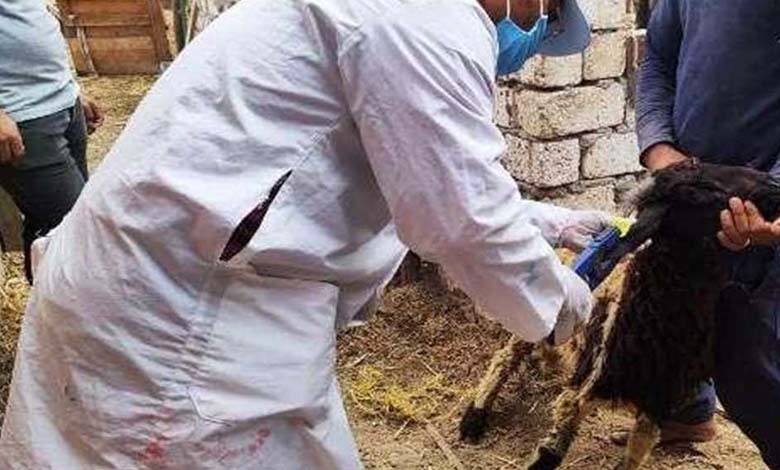Egypt: Details of a veterinary campaign for prevention of a dangerous disease

Questions arose in Egypt after the Veterinary Medicine Authority, a part of the Ministry of Agriculture, announced the launch of a national vaccination campaign against Contagious Caprine Pleuropneumonia (CCPP) with the aim of preserving animal wealth. However, a government official confirmed that “the situation is safe, and the country has only recorded one case of the disease this year.”
The vaccination campaign began last Monday, where the Veterinary Medicine Directorates in Egypt‘s provinces called on all farmers to cooperate with the veterinary teams responsible for vaccinating sheep and goats against CCPP to protect their livestock.
The Ministry of Agriculture also noted that relevant authorities such as the security directorates, local authorities, endowment directorates, church officials, mayors, and community leaders are providing necessary support for vaccination committees and raising awareness among farmers about the importance of the campaign.
What is Contagious Caprine Pleuropneumonia (CCPP)?
According to the Food and Agriculture Organization (FAO), Contagious Caprine Pleuropneumonia (CCPP) is a highly contagious viral disease that is prevalent in about 70 countries across Africa, the Middle East, and Asia. It causes annual losses ranging from $1.5 to $2 billion.
The FAO also states that small-scale farmers and their families rely on small ruminants (sheep and goats) as a source of food such as meat, milk, and other products, providing daily income. Sheep, in particular, represent an investment and a unique asset for poor families during crises like natural disasters.
Egypt’s livestock population includes approximately two million sheep and goats, according to recent statistics from the Ministry of Agriculture.
The Egyptian Campaign’s Objective
Naglaa Redwan, the head of the Central Department of Preventive Veterinary Medicine in Egypt, stated that:
Egypt is among the countries that have signed the Global Plan to eliminate Contagious Caprine Pleuropneumonia (CCPP) by 2030. The plan includes implementing vaccination campaigns against the disease, which Egypt carries out once every year, specifically in September or October. The campaign’s objective is to protect the livestock of sheep and goats by raising their immunity against this disease. Small-scale breeders, in particular, are threatened by this disease because they are the primary owners of sheep and goats. Therefore, preventive campaigns protect their assets. Preventive campaigns are part of the state’s policy to combat infectious diseases, such as vaccination campaigns against foot-and-mouth disease, which occur three times a year. During the CCPP vaccination campaign, a live vaccine is used, providing protection for one year. In addition to the annual campaign, the vaccine is available throughout the year to vaccinate newborn sheep and goats at four months of age.
Climate change and rising temperatures in recent years have aided the spread of some diseases by promoting the proliferation of infection-carrying insects. There is ongoing cooperation between veterinary medicine and the Ministries of Health and Environment in this regard. Within one week of the campaign’s start, we were able to administer a quarter of a million doses of the CCPP vaccine, and it is provided free of charge. This disease already threatens animal wealth because it spreads rapidly and can be directly transmitted from infected goats to healthy ones. However, repeated vaccination campaigns have made infection nearly non-existent, and we have only recorded one case this year so far.












